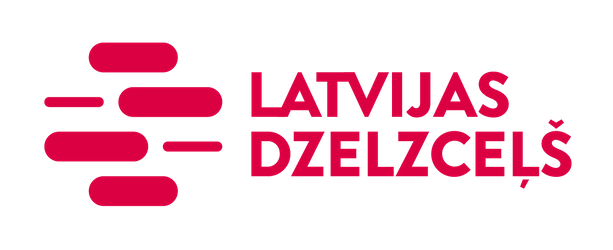On 8 July 2008 the European Commission (EC) adopted Greening Transport Package or environmentally friendly transport legislation. SJSC Latvijas dzelzceļš (LDZ) fully supports the EC adopted legal provisions, because the company is for environmentally friendly transportations.
The aim of the new EC initiatives is to achieve transport sustainability. In order to reach the aim, there is determined a performance strategy in Greening Transport Package. As a result of its implementation it will be ensured that transport charges reflect their real expenses to society, thus gradually decreasing harm to the environment and traffic jams, and at the same time improving efficiency both in transport sector and in national economy in general. In the directive there are stated proposals on the ways how member countries could take part in the implementation of the task, by determining more effective and greener road use charges for trucks. Revenue from these charges would be used to reduce traffic jams and environmental impact of traffic. In the package there is included also report on noise reduction of rail freight transport.
The EC foresees that the European Parliament will adopt the directive soon and it will come into force before year 2011. An important strategy element is a proposal to review the directive (Eurovignette directive) on charge determination of the use of infrastructure for trucks. The aim of the proposal is to make a system, where the member countries could reckon and diversify the charges considering air and noise pollution due to emissions and traffic jams in rush hours. It will motivate transport carriers to buy more environmentally friendly vehicles, and to improve logistics and route planning. Charges have to be collected using electronic systems, and all revenue have to be used to reduce negative impact of transport, for instance, to invest the resources in research and development of environmentally friendly and energoeffective vehicles.
LDZ, an infrastructure manager and a carrier, fully supports this approach.
The proposal to introduce a road tax was accepted, because in this way the EC tries to make an equal treatment towards different modes of transport (motor transport, railway, aviation, sea and water transport). It is important to point out that rail transport creates four times less pollution than road transport. Expenses of accidents and CO2 emissions also could be taken into account, which were not included in the EC impact assessment.
Taking into account these aspects it can be understood that state supports transportations, which create 72% from all CO2 pollution in transport sector. In comparison – railway in the EU creates only 1.6% CO2 emissions from total transport sector pollution.
Motor transport sector already historically receives state support for infrastructure development and maintenance; on the contrary, railway infrastructure only in the last few years received co-funding from the state and it is a little percentage from total investment amount. All excise tax revenue from fuel used in rail transportations go to motor road fund or to state budget.
Freight holders, who transport their freight by rail, pay for the use of rail infrastructure. By accepting the amendments in Eurovignette directive, this disproportion would be partially reduced, and freight carriers would pay for infrastructure (or the created pollution) in every transport mode.
It is unlikely that in the existing situation any EU country will introduce road tax or will increase excise tax for motor transport, but it is necessary to make a decision on support reduction to one transport mode only. Possibly the deadline has to be determined to make the use of methodology of external costs internalization (inclusion in accounts) obligatory.
In Europe rail freight transportations make up approximately 18% from total freight volume; therefore, implementation of such instruments is supported to promote competitiveness among different kinds of transport.
LDZ participates in the EU and international railway organizations; it cooperates with companies of other railways and popularize railway as a green transport mode. LDZ is a member of the Community of European Railway and Infrastructure Companies (CER) and the International Union of Railways (UIC).
In the report on the existing rolling stock noise reduction it is described how to reduce noise of freight wagons by 50%. It means that starting from year 2014 16 million inhabitants of the EU will suffer considerably less from the noise created by railway. Currently the biggest noise is created by the old wagons. Therefore, till the end of this year the Commission will prepare proposals to amend the EU requirements regarding charge determination of track access to further the use of wagons, which are equipped with silent brake systems.
Taking into account the aims and tasks, the following benefits are foreseen:
- Truck created CO2 and sulphuric emissions will be reduced by 6-8% each year, because in the new trucks there will be set up facilities that will reduce pollution; and trucks themselves will be used only in the places where they affect the environment the least.
- Freight wagon noise will be reduced by 50%, because rail wagons in the whole network will be equipped with silent brakes.
- Transport service charges will depend more on expenses for harm done to the environment; it will stimulate transport users to change their habits.
Prepared by:
LDz Public Relations Division
Phone: +371 67234909

